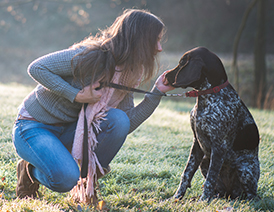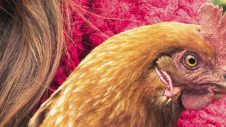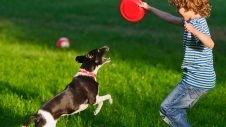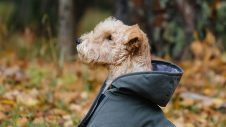Winter can be a time that makes us all feel under the weather. Like us, our pets also notice the cold. Here is what to look out for with your pet in Winter.
Arthritis
 Dr Adam Sternberg, Regional Clinical Director – NSW and ACT of Greencross Vets warns about the effects of the cold on arthritis sufferers. ‘As with humans, the cold weather can make arthritis symptoms worse,’ says Dr Adam Sternberg. ‘The first thing to look out for is a decrease in activity levels that could be due to the discomfort and pain from arthritic joints,’ he says. Book a health check with your local Greencross Vets if you’re concerned about your pet’s health.
Dr Adam Sternberg, Regional Clinical Director – NSW and ACT of Greencross Vets warns about the effects of the cold on arthritis sufferers. ‘As with humans, the cold weather can make arthritis symptoms worse,’ says Dr Adam Sternberg. ‘The first thing to look out for is a decrease in activity levels that could be due to the discomfort and pain from arthritic joints,’ he says. Book a health check with your local Greencross Vets if you’re concerned about your pet’s health.
Shelter from the cold
Adequate warmth and shelter are essential in combating the cold weather. Dr Sternberg reminds us – ‘Ensure your pet has adequate shelter and warmth. It may seem obvious, but double check that pets can safely shelter themselves from wet weather and wind.’ Some very old pets with severe joint disease may not have the capacity to remove themselves from the elements and seek out the shelter you are providing. They do need that extra TLC. Have them snug as a bug in a rug inside your home for that extra special comfort.
It’s also worthwhile to give pets warmer, padded bedding and more blankets so they can escape the cold. Know your pet – this is especially important for short-haired dogs that live outside. Breeds such as whippets can feel the cold more than other dogs.
Another option is to purchase a jacket or clothing to keep your pet warm if they feel comfortable wearing them. Also, consider bringing your pet inside at night if they’re older or a short-haired breed.
Winter diet
As we tend to stray away from exercise in colder weather, we may forget our pets’ activity needs. Decreased activity without a change in diet may impact your pet’s metabolism. Dr Sternberg thinks ‘In Wintertime, many people won’t exercise their dogs as much as in the Spring or Summer with the beautiful weather. If you know your dog will be getting less exercise – even if it means reducing the length or frequency of walks – remember to adjust their diet to avoid Winter weight gain.’
The same goes for cats, which can become less inclined to exercise or venture outside in winter. Ensure you’re exercising your cat regularly with playtime, and adjust their diet to align with activity levels.
Exercising in Winter
The cooler weather doesn’t mean our pets won’t enjoy exercise as much. ‘Most pets are happy to participate in regular exercise routines if they’re enjoying company with their owners,’ says Dr Sternberg. ‘Again, it’s important to be aware that they may be slower than normal, particularly if they’re older or have arthritis. Steady exercise and a good warm-up will reduce injury.’
If your pet is slower than usual, or acts “sluggish” or like they’re in pain – all of which can be exacerbated by colder weather – ensure you talk to your local Greencross Vets . By Booking a health check at your local Greencross clinic, your vet can advise you about treatment for conditions for arthritis, and about diet and exercise for your pet.

 Greencross Vets
Greencross Vets 









